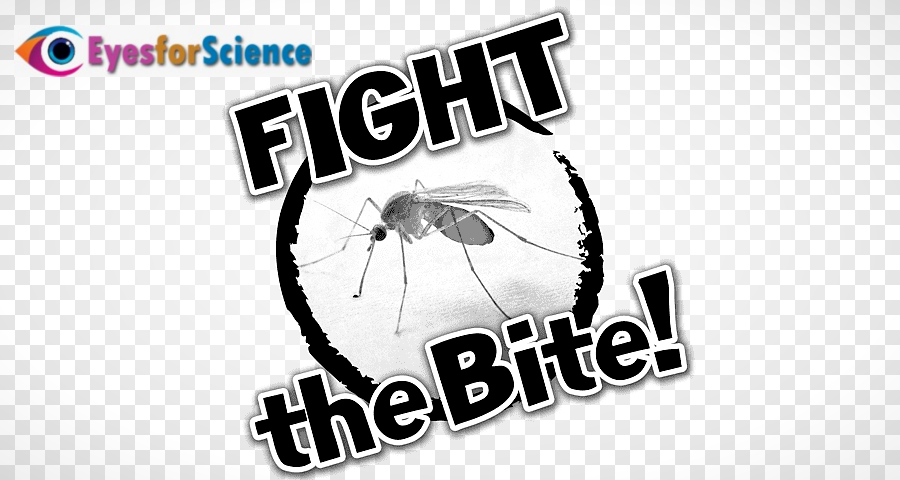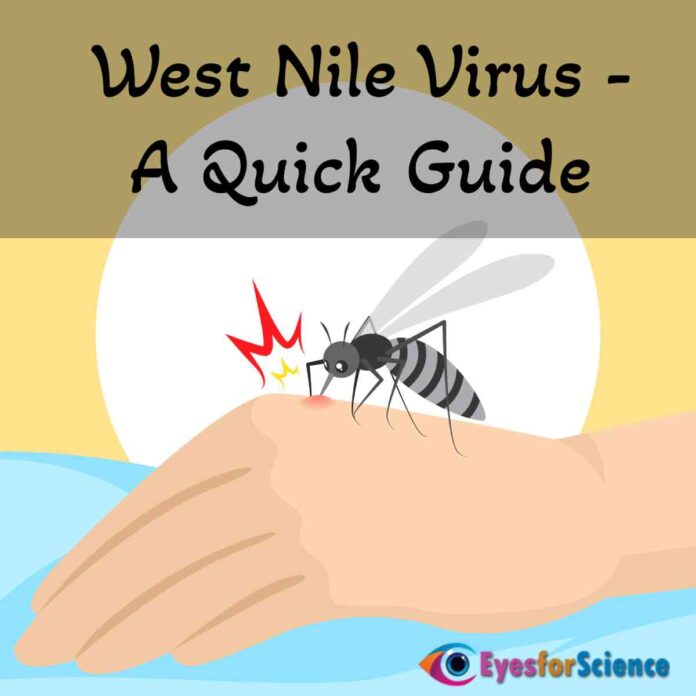What is West Nile Virus and West Nile Fever?
West Nile virus (WNV) is a human pathogen causing encephalitis and West Nile fever. It is the cause of West Nile Fever. The bite of a mosquito can spread West Nile viruses into your body. The condition ranges from mild to severe. Approximately 80% of infections show few or no symptoms. Fever, headache, vomiting, or rash affect around 20% of people. Encephalitis or meningitis affects fewer than 1% of the population, causing neck stiffness, disorientation, or convulsions. Let us get more insights into what is West Nile Fever.
How West Nile Virus Spreads?
West Nile virus (WNV) spreads by mosquitos that become infected after feeding on infected birds, which usually carry the disease. In nature, the transmission between birds and mosquitoes then to humans maintains the cycle of West Nile Virus. Humans, horses, and other animals are all susceptible to infection. In rare cases, the virus spreads between people via blood transfusions, organ transplants, or from mother to baby during pregnancy, delivery, or breastfeeding, but it does not spread directly between people otherwise. Besides this, being over the age of 60 and having other health issues are both risk factors for severe disease. Above all, blood tests and symptoms of west Nile fever help in the right diagnosis of the condition.
Discovery of the Viruses
In 1937, the West Nile Virus (WNV) was discovered in a woman in Uganda’s West Nile district. It was first detected in birds (crows and Columbiformes) in the Nile delta region in 1953. It is now the arbovirus with the largest geographic spread, having locations in North and South America, Africa, Europe, Asia, and Oceania. However, the West Nile virus spreads when a mosquito attacks an infected bird and then infects a person.

Symptoms of the West Nile Virus
Symptoms of the West Nile Virus can be broadly categorized into:
Mild Infections
- Fever
- Headache
- body aches
- Vomiting
- Fatigue
- skin rash
Serious Infections
- High fever
- Severe headache
- Stiff neck
- Disorientation or confusion
- Coma
- Seizures
- Muscle weakness
- Vision loss
- Numbness
Approximately 80% of those infected with West Nile virus (WNV) exhibit no symptoms and go undiagnosed. Although, approximately 20% of infected people experience side effects. Intensity of symptoms may differ in people and it takes around 3-14 days to show symptoms once infected. Most people who do have mild WNV symptoms recover completely, although tiredness and weakness may last for several weeks or even months. Symptoms can range from moderate to severe, such as paralysis and meningitis. Whereas, a serious infection can remain for weeks and, in rare cases, lead to permanent brain damage. If the virus affects the central nervous system, death may occur. Medical conditions such as diabetes and high blood pressure, as well as being over the age of 60 increase the likelihood of having severe symptoms.
Although, West Nile fever symptoms often persist for a few days. Nevertheless, symptoms of encephalitis or meningitis can last for weeks or months. Certain neurological effects, such as muscle weakness, have the potential to be permanent.
When should you see a doctor?
Mild West Nile fever symptoms normally go away on their own. However, if you develop severe headaches, a stiff neck, dizziness, or confusion, seek medical assistance straight away. In most cases, a serious infection requires hospitalization.
Also read Vaccination in The Age Of Modern Pandemic.
Transmission
Human infection generally occurs by a mosquito bite. Mosquitoes become infected by feeding on infected birds, which carry the disease around and in their blood for a few days. The virus eventually reaches the salivary glands of the mosquito. The virus may be transferred into humans and animals during later blood meals (when mosquitos bite), where it can multiply and perhaps cause sickness. Contact with other infected animals, their blood, or other tissues can also spread the infection. Human infections have occurred in a very small number of instances through organ transplantation, blood transfusions, and breast milk. There has been one case of WNV transfer from mother to kid. No human-to-human transmission of WNV is seen until now, and no transmission of WNV to health care workers is reported as well when standard infection control precautions are followed.
Exams and Tests
West Nile virus symptoms are similar to those of other viral infections. A physical examination may reveal no specific findings. Also, a rash may develop in about half of those affected only by the West Nile virus.
Tests for the West Nile virus include the following:
- A blood test or a spinal tap to look for viral antibodies
- CT scan of the head
- MRI of the head
Treatment
Infection with West Nile virus has no specific treatment. Most patients heal without any therapy. In moderate cases, over-the-counter pain relievers can aid individuals suffering from slight headaches and muscle aches. In severe cases, supportive treatment is provided, often in a hospital, including intravenous fluids, pain medication, respiratory support, and prevention of secondary infection.
How to Prevent West Nile Fever?
In the warm embrace of summer, the buzz of mosquitoes can be an inevitable annoyance. However, with the rise of West Nile Virus, taking proactive steps to protect yourself and your loved ones becomes essential. Here’s a how to prevent West Nile Fever and keep those pesky mosquitoes at bay.
Dress the Part
Consider your wardrobe a shield against mosquitoes. Opt for long sleeves and pants, preferably in light colors, to reduce your chances of mosquito bites. This not only adds a touch of fashion sense to your summer attire but also creates a physical barrier that mosquitoes find harder to penetrate.
Mosquito Repellents – Your Invisible Armor
Invest in a reliable mosquito repellent to create an invisible force field around you. Apply it on exposed skin, and don’t forget those often-neglected ankles and wrists. Whether you’re enjoying a backyard barbecue and enjoying winter foods or strolling through a park, a quick spritz of repellent can make a significant difference.
Dusk and Dawn Awareness
Mosquitoes are notorious for making their grand entrance during the twilight hours. To minimize your risk of exposure, plan outdoor activities accordingly. If possible, schedule your evening walks or gatherings to avoid the peak mosquito activity during dusk and dawn.
Eliminate Standing Water
Mosquitoes breed in stagnant water, turning even the tiniest puddle into a potential breeding ground. Be vigilant about removing standing water around your home – from flowerpot saucers to clogged gutters. A mosquito-friendly environment is the last thing you want on your doorstep.
Screen Time – Literally
Ensure that your home is a fortress against mosquitoes by installing screens on windows and doors. This allows you to relish the fresh breeze without inviting unwanted guests. Patch up any holes or tears promptly, as even the smallest opening can be an entry point for mosquitoes.
Incorporating these simple, human-friendly practices into your routine can go a long way in preventing the spread of West Nile Virus. Remember, a little mindfulness and proactive effort can turn your summer into a season of joy, minus the itchy aftermath. Stay safe, stay mosquito-free!








